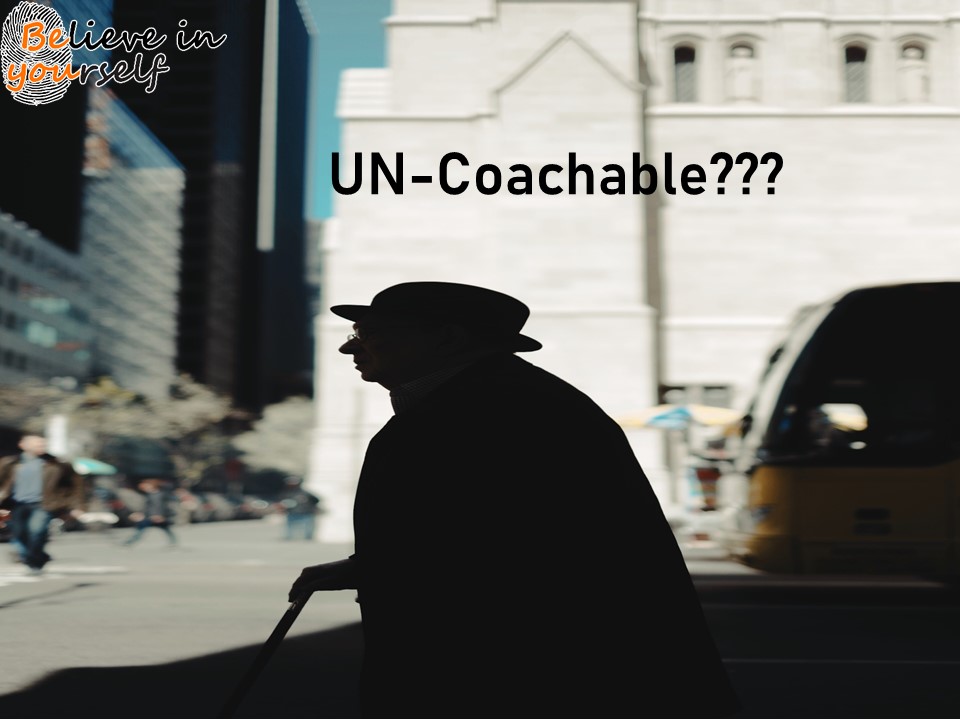From The Editor’s Desk - September 2019

On a lazy holiday few weeks ago, our BIY whatsapp group went buzzing with tremendous activity and energy. Our deeply passionate tribe of now nearly 120 coaches across the world debated, brought in perspectives, shared ideas and deeply reflected on the idea of what is ‘Uncoachable’, over more than 24 hours. It did feel like an extended jamming session that had our coaches pulling out metaphors from mythology, their experiences in coaching clients and above all their innate wisdom about human behaviour, with all the allowance and non-judgement towards each other in the conversation. Presenting some highlights of all the profound knowledge and insights that were shared within that group. Feel free to expand this repository of knowledge and write to us with your views on the meaning of ‘Uncoachability’, does it exist, if it does then why and how can it be addressed.
“People become uncoachable when they are unwilling to look inwards and instead blame everything on the world outside.”
“One of the mandates that a coach has in such cases is to be able to help the coachee shift that outlook and look for answers within. How much time should the coach then invest in doing so? Is it only the coach’s mandate, therefore, to be accountable for bringing in such shifts? What is the opportunity cost of coaching the ‘Uncoachables’.”
“The coaches are hired to get results. The question therefore is can we, as coaches, get results for all? Or do we choose to work with certain clients where the potential of witnessing positive results is likely. In which case, is it fair to call a coachee ‘uncoachable’ as the relationship is largely defined by the decision and choices of the coach?”
“Therefore, as a coach, is it our job to create the results or to walk with the individual as they see, and often even create, possibilities?”
“At certain times everyone can be uncoachable. So, if someone feels so vulnerable that they don’t want to even think about a certain issue, let alone talk, maybe it is not the right moment to have a coaching conversation. Maybe at that time all they need is a supportive presence.”
“The Zen story of 4 horses in a book called Mastery by George Leonard presents an insight that says when someone looks uncoachable in a coach’s world, it mirrors something inside the coach that needs looking at or melting. We tend to sometimes run away from what mirrors our imperfections.”
“Sometimes, the quest to get a coachee to reach a certain tangible level of progress reflects assertion of personal authority on part of the coach. This mostly reveals a hidden insecurity or an aspect of self that needs some work to be done. Coaching presence often doesn't need to "exert" authority. It’s like gravity that doesn't "do" anything but things move in its presence.”
“Sometimes clients do go through a session with the coach but fail to follow through on their commitments made. Which brings forth the importance of contracting as a starting point of the relationship and how designing and following through on the commitments is a coachee’s agenda. How do we coaches therefore help coachees overcome this resistance to take action? Can we allow them a space that is not meant to fix them rather discover what it means to take positive actions towards bringing in a positive change?”
“As a coach, the reflection, therefore, can also be around what does this resistance do to me? Can I be aware of it and park aside any unfavourable feelings in that moment? Can I ask myself questions like “what's missing here that I can open to the possibility for shifting?" "What could I be doing differently here that will create a far-reaching positive impact for both of us"
“Being uncoachable could be situational as well. Possibly, someday, the client may choose to be coached by someone either because they have progressed in their journey or self-awareness or because the trust in the process has moved up.”
“The book ‘Trillion Dollar Coach’ states the fundamental traits of coachability are honesty, humility, the willingness to persevere and hard work and a constant openness to learning. When people are in such denial that they are not honest with themselves, they become ‘uncoachable’. You can only meet someone as deeply as they are willing to meet themselves.”
“Being coachable and Uncoachable is the line that a coach treads by creating that comforting factor of letting the client be vulnerable enough and planting the seed of ‘Vulnerability is ok’ in the minds of the coachee.”
“Within organisational setups, sometimes the positioning between aspirational and privilege vis a vis a remedy also helps coachees put their guards down and be more open to acceptance, experimentation and change. How can organisations therefore, look at this messaging appropriately?”
So, to conclude, our community did feel that this interesting dichotomy exists and as coaches we have a role to play. Being aware of our own internal biases and addressing our inner chatter and beliefs topped the list of actionable points. As coaches, can we, therefore, partner with our clients at a much deeper level in raising their awareness through powerful questioning thus creating safe space for them to express their vulnerabilities, be comfortable in the same and experience a coaching presence that allows change at a pace that is meaningful for the client?
Finally, do organisations have a role to play here? We feel to a large extent they can in clarifying coaching objectives and creating a meaningful space for people to reflect, experiment and leverage the coach’s presence for imbibing small changes that will expand, stick and sustain in a long run.
